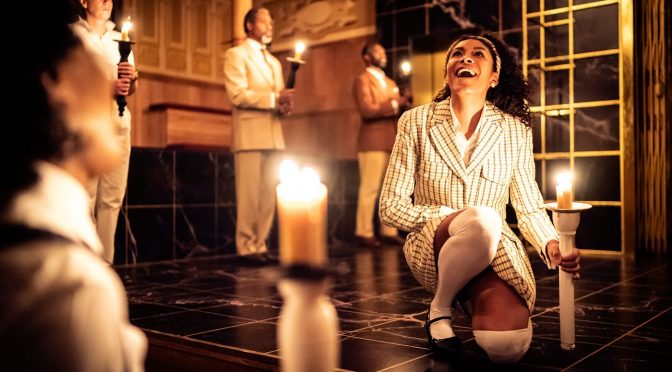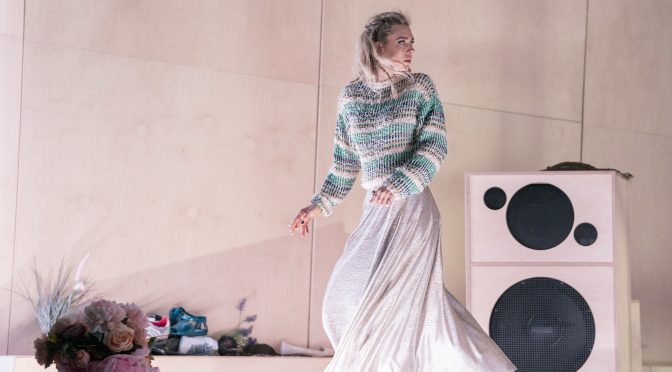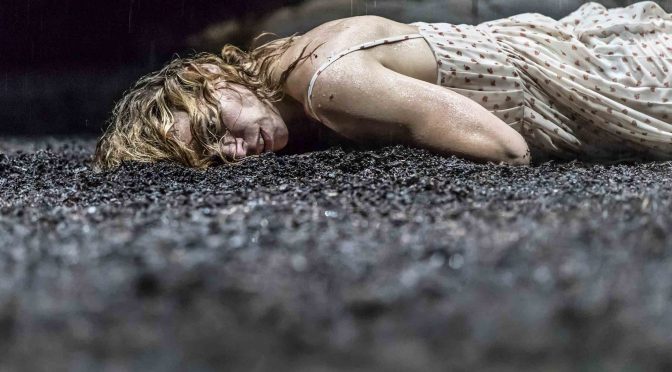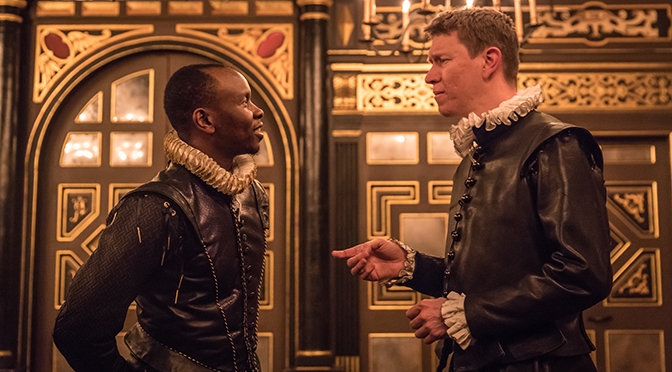Like Thomas Middleton’s Jacobean play itself, this production has its bumpy moments. The exaggerated characters, plot twists and sexual politics all have to be negotiated in any revival. And director Amy Hodge does well, making the play entertaining, fast paced and full of drama.
Hodge focuses on the three female leads and makes the all the talk of honour and virtue convincing – Thalissa Teixeira and Olivia Vinall give captivating performances as two very different young women in love. Meanwhile, Tara Fitzgerald has the great role of arch-villain Livia and deals well with the camper moments of her truly wicked “shop of cunning”.
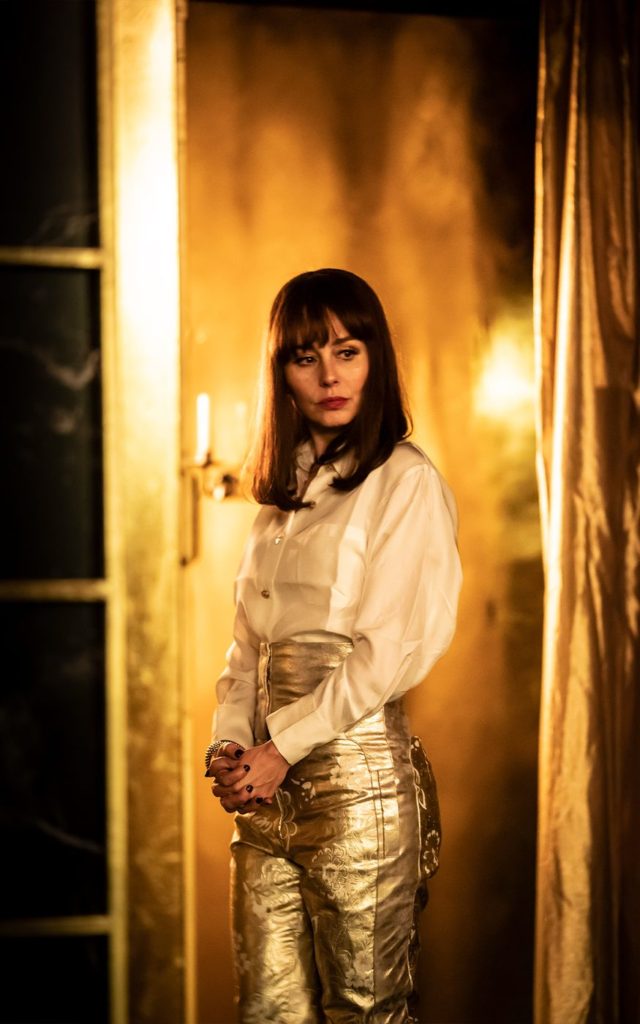
Make no mistake, a lot of what happens in Women Beware Women is awful. The sexual violence and coercion aren’t shied away from and Teixeira in particular handles this bravely. But the production also deserves praise for connecting this with the sexism that pervades the play, for example, the ‘advice’ about what kind of woman should be wed is delivered as a song (James Fortune’s music for the show is consistently strong). There’s a creeping nausea about the confined lives of all the female characters.

Sinister performances from the play’s powerful male characters add to the tension. Simon Kunz makes the most of a relatively small part as the Duke of Florence. Daon Broni is truly creepy as Hippolito, who tricks his niece into an incestuous relationship. Best of all is the mercantile Guardiano, a consistently strong performance by Gloria Onitiri, who brings out scheming, snobbishness and wrath by turns.
Despite all this praise, the production has glitches. Joanna Scotcher’s design is confusing (the aim was the 1980s, but you’d struggle to work that out). Comedy in Women Beware Women is a tricky affair, full stop, and the character of the hapless Ward, played by Helen Cripps, is an unhappy one. And there’s the decision to stage the Masque within the play with tongues in cheek. I happen to disagree and think this scene should escalate the drama, instead of comically diffusing it. But I understand the thinking – the genre is tricky to get your head around – and the decision is well executed, indeed so many bodies on such a small stage is handled superbly. Yet the Masque remains the most obvious moment when Hodge doesn’t smooth over the play’s faults as might be wished. Arguably, it’s not her job to. But the resulting production is a staccato affair that has plenty to praise but also too many stops and starts.
Until 18 April 2020
Photos by Johan Persson

